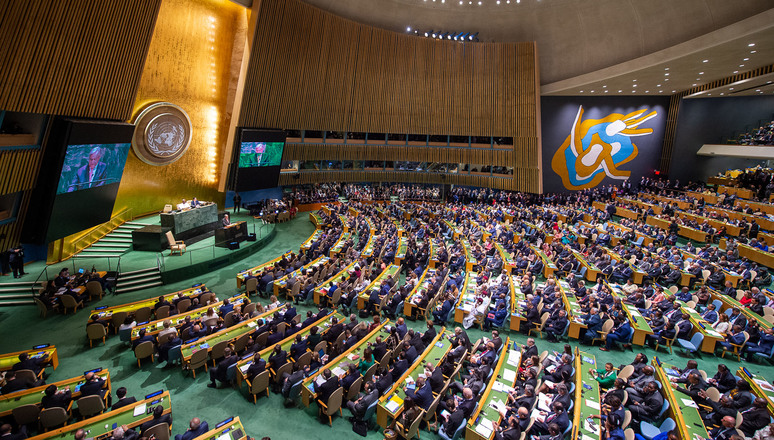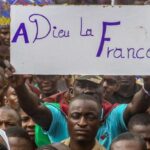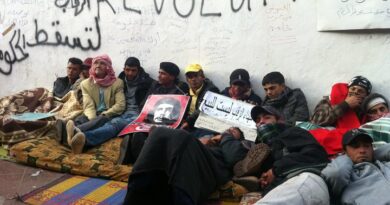The Global South rejects pressure to side with the West against Russia
VIJAY PRASHAD
New Delhi
At the G20 meeting in Bengaluru (India), the United States came with a simple slogan. US Treasury Secretary Janet Yellen said at the February 2023 summit that the G20 countries must condemn Russia for its invasion of Ukraine and adhere to US sanctions against Russia. However, it became clear that India, the chair of the G20, was not willing to conform to the US agenda. Indian officials claimed that the G20 is not a political meeting, but a meeting to discuss economic issues. They contested the use of the word “war” to describe the invasion, preferring to label it a “crisis” and “challenge”. France and Germany have rejected this project if it does not condemn Russia.
As in Indonesia during the previous year's summit, the 20 G2023 leaders are again ignoring Western pressure to isolate Russia, as the big developing countries (Brazil, India, Indonesia, Mexico and South Africa ) are unwilling to budge on their practical view that Russia's isolation endangers the world.
The next two G20 summits will take place in Brazil (2024) and South Africa (2025), signaling to the West that the G20 platform will not be easily subservient to the Western vision of world affairs.
Most of the leaders of the G20 countries traveled to Bengaluru directly from Germany, where they had attended the Munich Security Conference. On the first day of the Munich conference, French President Emmanuel Macron said he was "shocked by how much credibility we are losing in the Global South." The “we” in Macron's statement were the Western states, led by the United States.
What is the evidence of this loss of credibility? Few of the states in the Global South have been willing to participate in isolating Russia, including voting on Western resolutions in the United Nations General Assembly. Not all states that have refused to join the West are "anti-Western" in a political sense. Many of them - including the Indian government - are guided by practical considerations, such as reduced energy prices in Russia and assets being sold at cut prices by Western companies exiting Russia's lucrative energy sector. Whether fed up with pressure from the West or seeing economic opportunities in their relationship with Russia, more and more countries in Africa, Asia and Latin America have avoided pressure from Washington to cut ties with Russia. It is this rejection and evasion that led Macron to make his forceful declaration of being “shocked” by the loss of credibility of the West.
In a panel discussion held on February 18 at the Munich Security Conference, three leaders from Africa and Asia made the case for why they are unhappy with the war in Ukraine and the campaign to pressure them to cut ties with Russia. The Brazilian Minister of Foreign Affairs, Mauro Vieira, who that same day condemned the Russian invasion of Ukraine, urged the different parties in the conflict to “construct the possibility of a solution. We can't just keep talking about war."
Western states have sent billions of dollars worth of weapons to Ukraine to prolong a war that must be ended before it gets out of control. The West has blocked negotiations since the possibility of an interim agreement between Russia and Ukraine arose in March 2022. Endless war talk by Western politicians and Ukraine's weaponization prompted Russia's withdrawal on February 21 of 2023 of the New START Treaty, which -with the unilateral withdrawal of the US from the Anti-Ballistic Missile Treaty in 2002 and the Intermediate Nuclear Forces Treaty in 2019- puts an end to the nuclear arms control regime.
Vieira's comment on the need to “build the possibility of a solution” is shared by all developing countries, which do not see endless war as something beneficial for the planet. As the Vice President of Colombia, Francia Márquez, said on the same panel: “We do not want to continue discussing who will be the winner or loser of a war. We are all losers and, in the end, it is humanity that loses everything.
The strongest statement in Munich was made by Namibian Prime Minister Saara Kuugongelwa-Amadhila. “We are promoting a peaceful resolution of that conflict” in Ukraine, he said, “so that the entire world and all of the world's resources can be focused on improving the conditions of people around the world instead of being spent on acquiring weapons, killing people and actually create hostilities.” When asked why Namibia had abstained in the United Nations vote on the war, Kuugongelwa-Amadhila said: "Our focus is on solving the problem...not on blaming." The money used to buy weapons, she said, "could be better used to promote development in the Ukraine, in Africa, in Asia, elsewhere, in Europe itself, where many people are experiencing hardship." A Chinese plan for peace in Ukraine - built on the principles of the 1955 Bandung Conference - absorbs the points raised by these leaders from the Global South.
European leaders have turned a deaf ear to the arguments put forward by the likes of Kuugongelwa-Amadhila. The High Representative of the European Union for Foreign Affairs and Security Policy, Josep Borrell, had already shot himself in the foot with his unpleasant statements in October 2022: “Europe is a garden. The rest of the world is a jungle. And the jungle could invade the garden… Europeans have to engage much more with the rest of the world. Otherwise, the rest of the world will invade us.” At the Munich Security Conference in February 2023, Borrell - of Spanish origin - said he shared Macron's "sentiment" that the West had to "preserve or even rebuild trusting cooperation with many of the so-called countries of the South." ”. The countries of the South, Borrell said, "accuse us of [a] double standard" when it comes to fighting imperialism, a position that "we must discredit."
A series of reports published by major Western financial houses echo the concerns of people like Borrell. BlackRock points out that we are entering “a fragmented world with competing blocks”, while Credit Suisse points to the “deep and persistent fractures” that have opened up in the world order. Credit Suisse's assessment of these “fractures” accurately describes them: “The global West (Western developed countries and allies) has drifted away from the global East (China, Russia and allies) in terms of core strategic interests, while the Global South (Brazil, Russia, India and China and most developing countries) is reorganizing to pursue its own interests.
This reorganization is now manifested in the Global South's refusal to bend the knee to Washington.
Vijay Prashad is an Indian journalist and historian. Director of the Institute for Social Research tricontinental. He has written more than 20 books. The last one in collaboration with Noam Chomsky: "The retreat. Iraq, Libya, Afghanistan and the fragility of US power., reviewed by David Bollero at Globalter.
This article is published in collaboration with Globetrotter












